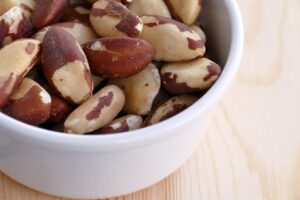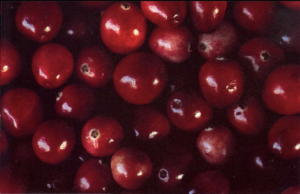Even though the indigenous people of Australia were well aware of macadamia nuts, which they called “kindal kindal,” it was not until the mid-nineteenth century that two European botanists discovered them growing in the rain forests of the eastern part of the country. The botanists named their findings after their friend, Dr. John Macadam.

Initially, macadamia nut trees would only have consideration as ornamental plants. But, in the 1890s, after the trees arrived on the shores of Hawaii, people began growing the nuts for human consumption. Still, it is essential to note that macadamia nuts may succeed only in specific environments. They require tropical temperatures and abundant amounts of rain. Australia and South Africa are the two top-producing countries. Macadamia nuts also grow in the United States, Mexico, Guatemala, Brazil, Costa Rica, Malawi, Zimbabwe, and Kenya.
The internal makeup of macadamia nuts is fats. Every 100 grams of raw macadamia nuts consists of 74 g of fat. However, of the 74 g of fat, 60 g is monounsaturated (primarily oleic and palmitoleic acids), which is generally considered extremely healthful. Another 4 g is polyunsaturated fat, and 10 g is saturated. The nutritional benefits of macadamia nuts include being high in potassium and phosphorus. They also have good amounts of protein, carbohydrates, dietary fiber, magnesium, and calcium. Furthermore, the nuts have small amounts of zinc, iron, selenium, manganese, copper, folate, niacin, and vitamins B1, B2, Bs, B6, and E. They have polyphenols, which are antioxidant phytochemicals, and phytosterols, which are plant sterols.
For years, people who feared the high-fat content of macadamia nuts avoided them. During the past decade or so, that seems to have changed. Still, the research on macadamia nuts has focused on cardiovascular health.
Nutritional Benefits Of Macadamia Nuts In Cardiovascular Health
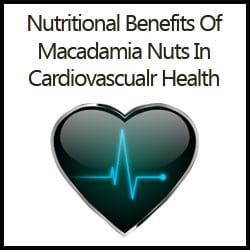
In a study published in 2000 in the Archives of Internal Medicine, 30 volunteers between the ages of 18 and 53 had an evaluation in a randomized cross over the trial of three different 30-day diets. The three diets studied are:
- The “typical American” diet is high in saturated fat, with 37 percent energy from fat.
- The American Heart Association Step 1 Diet has followers receiving 30 percent of energy from fat.
- Macadamia nut-based monounsaturated fat diet, with 37 percent energy from fat.
The researchers put their findings up against the typical American diet. The subjects eating the American Heart Association diet and the macadamia nut diets significantly reduced total cholesterol and LDL (“bad”) cholesterol. The issues with eating the macadamia nut-based diet had a more significant reduction in triglyceride values. The researchers concluded that consuming higher amounts of macadamia nuts produced lower cholesterol levels. “When total energy balance and percentage of energy from fat are maintained, physicians can recommend the consumption of these nuts as part of a satisfying and healthy diet.”
A few years later, in 2003, Australian researchers reported on a similar study in The Journal of Nutrition. Their investigation included 17 men (mean age of 54 years) with elevated cholesterol levels. The men ate 40 to 90 g/day of macadamia nuts for four weeks. Equivalent to a 15 percent energy intake. At the end of the study, the researchers concluded that the men’s total and LDL cholesterol levels had been reduced by 5.3 percent. Levels of HDL (“good”) cholesterol increased by 7.9 percent. The researchers noted, “This study demonstrated that macadamia nut consumption as part of a healthy diet favorably modifies the plasma lipid profile in hypercholesterolemic men despite their diet being high in fat.”
The Macadamia Nut Effects On Cholesterol
In a 12 to 18-week study conducted at the Human Nutrition Research Center on Aging at Tufts University and published in The Journal of Nutrition in 2009. Researchers investigated the effects of diets enriched in canola, safflower, macadamia, or palm/coconut oils on hamsters’ lipoprotein profiles and atherosclerosis. (Some hamsters fed palm oil were later fed coconut oil.) There was a comparison between the hamsters fed the palm/coconut diet and the hamsters fed the macadamia oil diet. The nutritional benefits of macadamia nuts were proven in the diet by producing lower non-HDL cholesterol and triglyceride values. Compared to the coconut, canola, and safflower oil, the hamsters fed the macadamia nut oil had higher HDL cholesterol.
Studies On Macadamia Nuts And Cholesterol
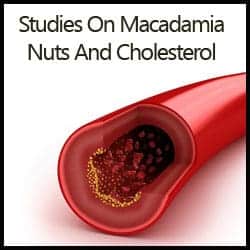
The following year, in 2004, Japanese researchers reported on their investigation of macadamia nut consumption in healthy, young Japanese women in Clinical and Experimental Pharmacology and Physiology. Over three weeks, the women were only on diets containing more significant amounts of macadamia nuts, coconuts, or butter. At the end of the study, women eating extra macadamia nuts and coconuts had significantly lowered total and LDL cholesterol. The group eating the macadamia nuts had a reduced body weight and body mass index. There were no statistically significant changes in the group who ate additional amounts of butter.
Meanwhile, researchers from South Africa decided to conduct a systematic review of published research studies. They examined the effects of nuts on lipids. Their results were published in 2005 in The Journal of Nutrition. Twenty-three studies were included on almonds, peanuts, walnuts, and macadamia nuts. There was also one study on pecans. Except for macadamia nuts, all the studies showed that the consumption of nuts decreased total cholesterol. Between 2 and 16 percent and decreases in LDL cholesterol between 2 and 19 percent. Commenting on the results from the macadamia nuts, the researchers noted that the “consumption of macadamia nuts (50-100 g/day) produced less convincing results.”
The researchers determined that the subjects who ate macadamia nuts experienced a 9.4 percent reduction in total cholesterol. Also, an 8.9 percent reduction in LDL cholesterol. The researchers concluded that “macadamia nuts can include in a heart-healthy dietary pattern that reduces lipid/lipoprotein CVD [cardiovascular]-risk factors. Their conclusion of the study led to researchers making this conclusion, “nuts as an isocaloric [having similar caloric value] substitute for SFA [saturated fatty acid] foods increase the proportion of unsaturated fatty acids and decrease SFA, thereby lowering CVD risk.”
(Check out Macadamia Nut Milk)
Macadamia Nuts And Lipids
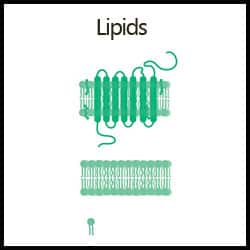
In a study published in 2007 in Lipids, the previously noted Australian researchers (plus one additional researcher) reviewed the information they had gathered on 17 men with elevated cholesterol levels. The goal was to determine if macadamia nuts could have other cardiovascular benefits. The researchers found that consuming macadamia nuts had favorable effects on “biomarkers of oxidative stress, thrombosis, and inflammation. They are the risk factors for coronary artery disease”. This occurred despite the increased intake of dietary fat from the nuts. The researchers wrote, “that regular consumption of macadamia nuts may play a role in preventing coronary artery disease.”
In a study published in 2008 in The Journal of Nutrition, researchers from Pennsylvania State University assigned 25 men and women with mildly elevated cholesterol levels to one of two groups. One group added 1.5 ounces per day of macadamia nuts to their diet. The second group ate an average American diet. While the fat in both diets remained essentially the same, the percentages of saturated and monounsaturated fats differed. The macadamia nut diet contained seven percent saturated fat, 18 percent monounsaturated fat, and five percent polyunsaturated fat. The standard American diet had 13 percent saturated fat, 11 percent monounsaturated fat, and five percent poly unsaturated fat. After five weeks, the subjects ate the alternate diet for another five weeks.


